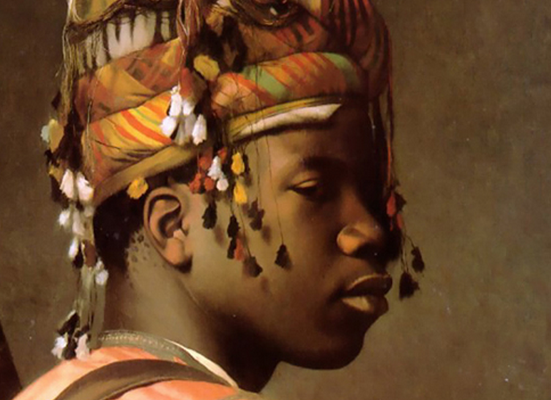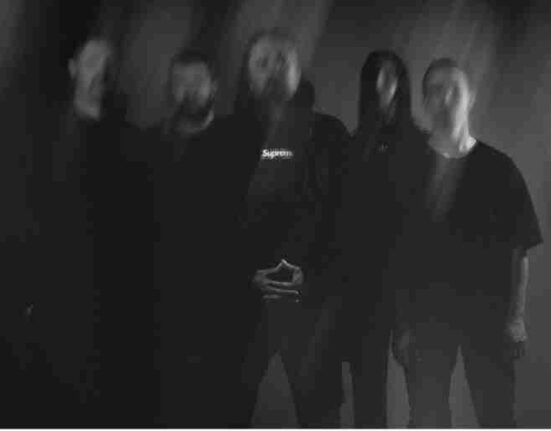On November 9, 2023 the regular triennial election for the International Court of Justice (‘ICJ’) took place in order to fill five vacancies. On that occasion, the United Nations General Assembly already at the first round, and the Security Council after five rounds, elected five judges to the Court (see UN Press Release here), which thus was rather unspectacular. What is however worth noting is that once again, and for the second time only in the history of the Court, a national of a permanent member of the Security Council, namely this time the current Russian judge (and Vice-President of the Court) Kirill Gevorgian, was not (re-elected). This raises the question whether this can be seen as a sign of a somewhat broader development. Or was this rather due only to the current unique historical circumstances, i.e. the ongoing armed attack by the Russian Federation against Ukraine?
As is well-known, the ICJ Statute contains a specific provision on voting when electing judges of the ICJ. Art. 10 ICJ Statute deviates in various aspects from the general rule contained in Art. 27 UN Charter. For one, and in accordance with Art. 10 (1) ICJ Statute (for details cf. B. Fassbender, ‘Art 10’ in A. Zimmermann/ C J Tams, (eds), The Statute of the International Court of Justice (3rd ed, 2019), which is mutatis mutandis identical to Art 10 (1) and (2) PCIJ Statute, the election of judges to the Court requires an absolute majority of votes in both, the General Assembly and the Security Council. This means that , as far as the Security Council is concerned, only a majority of eight instead of the usual nine (before 1966 by six instead of seven) votes is required.
Besides, it was already during the drafting of what is now Art. 10 ICJ Statute, that some debate did arise as to whether it should not be the General Assembly alone that should be entrusted with the task of electing the judges of the ICJ. The argument went that only that way a double voting right of States represented in both, the General Assembly and in the Security Council, would be avoided. At that time a compromise was reached. While a double majority in both organs was indeed foreseen, on the one hand, as mentioned, the necessary majority in the Security Council as compared to Art 27 UN Charter was lowered. On the other hand, and more important, any veto power of the permanent members of the Security Council was not foreseen. This is confirmed expressis verbis by the proviso in Art. 10 ICJ Statute that “[a]ny vote of the Security Council, whether for the election of judges or for the appointment of members of the conference envisaged in Article 12 [ICJ Statute], shall be taken without any distinction between permanent and non-permanent members of the Security Council.”. Under Art 10 (2) ICJ Statute of the ICJ, no de jure distinction is thus provided between permanent and non-permanent members of the Security Council when it comes to the election of judges of the ICJ by the Security Council. This exclusion had come about not the least due to the pressure of Latin American countries (cf. UNCIO XIII, 388 et seq.). They had not only had wanted, as mentioned, the election to be exclusively decided by the General Assembly, but also generally disliked the idea of a veto of the permanent members of the Security Council (cf. B. Fassbender, UN Security Council Reform and the Right of Veto (Kluwer Law International 1998) 163–70). This approach was further supported by the fact that a system of majority voting had already been introduced in the League of Nations. As a matter of fact Art. 10 Statute PCIJ had not provided for any distinction to be made between the permanent and the non-permanent members of the League’s Council when it came to the election of judges of the PCIJ. Art. 10 Statute PCIJ simply stated that “candidates who obtain an absolute majority of votes in the Assembly [of the League] and in the Council [of the League] shall be considered as elected.”
Notwithstanding this lack of the veto power of the permanent members of the Security Council when it comes to the election of judges of the ICJ there have almost always been throughout the history of the Court nationals of all of the five permanent members of the Security Council as members of the bench of the ICJ. The two notable exceptions concern on the one hand China between 1967 and 1985 (due to the issue of whether it was the Republic of China (Taiwan) or the People’s Republic of China, which could represent China within the overall system of the UN), and on the other the United Kingdom since 2018,
As will be recalled it was in 2017 that it was decided that the British national on the bench of the Court, then ICJ Judge Christopher Greenwood, would no longer run as a candidate for a second term after 11 rounds of voting, where the Indian candidate, now ICJ Judge Dalveer Bhandari from India had been able to gain increasing majorities in the General Assembly, while Judge Greenwood had been able to always garner a majority among the members of the Security Council (for details see here). After 71 of continued presence of a British judge at the ICJ, and after an almost continuous and uninterrupted presence of nationals of all five permanent members of the Security Council on the bench of the ICJ, this long-standing tradition was thus broken in 2018.
At the same occasion the French judge at the ICJ, Ronny Abraham, was however re-elected, while the Chinese Judge, Xue Hanqin, was re-elected in 2020. It was thus interesting to watch what would happen this time when the Russian Judge, Kirill Gevorgian, was running for re-election, who had been nominated by the Russian, Chinese and Bylorussian PCA national groups. This was notable in particular given that the Romanian national group of the PCA, supported by the PCA national groups of Bulgaria, Estonia, Italy, Latvia, Netherlands, Peru, Poland, Portugal and Sweden, had proposed a competing candidate for the slot meant for a candidate of the Eastern European regional group, namely former Minister of Foreign Affairs of Romania and current member of the ILC, Bogdan Lucian Aurescu.
At the same time the PCA’s national group of the United States had nominated Sarah Cleveland, given that the US judge on the bench and current president of the Court, Judge Donoghue, was not running for re-election.
While the General Assembly only needed oneround of voting, it took the Security Council five rounds to determine the five candidates to be elected, given that more than five candidates had received eight or more votes during the first four rounds of voting by the Council.
For purposes of the current enquiry it is particularly interesting to note that the US candidate had from the outset received not only the second highest number of votes in the General Assembly with 135 votes (just behind the Mexican candidate, Juan Manuel Gómez-Robledo,, who had received 143 votes in the General Assembly, and who had been the only candidate from the GRULAC regional group), but had also received in the Security Council in all rounds of voting the highest number of votes ranging from 14 votes in the first two rounds, to 13 (rounds 3 and 4) and eventually 12 votes (fifth and last round).
In contrast thereto, the Russian candidate not only failed to garner a majority in the General Assembly with only 77 out of 192 votes (thus being then second last with only the candidate from the DRC receiving less, i.e. 65 votes in the General Assembly). Rather it was also in the Security Council that the Russian candidate never had a majority with receiving only 5- 6 votes in each of the five rounds of voting. In contrast, the Romanian candidate from the outset had been able to get a majority in both, the General Assembly (117 votes) and in the Security Council (between 9 and 10 votes). Unlike in the case of Judge Greenwood not having been re-elected this result did not, however, result in a shift of the number of judgeships informally allocated (cf. B. Fassbender, ‘Art 10’, MN 22-25, in A. Zimmermann/ C J Tams, (eds), The Statute of the International Court of Justice (3rd ed, 2019) among the various regional groups.
This non-re-election of the Russian candidate follows a pattern of the Russian Federation not being able to either secure seats for the Russian Federation as such, or for individual Russian candidates, in international organizations ever since the armed attack by the Russian Federation against Ukraine in February 2022. It cannot thus yet be necessarily perceived as the expression of a general tendency of the permanent members of the Security Council no longer being ‘guaranteed’ one of their nationals being members of the Court. This is confirmed by the fact that the US candidate has been so easily elected. What is however interesting to note is that the United States, the United Kingdom and France have most probably not voted in favor of the Russian candidate. This can be deduced with a certain degree of probability from the voting results in the Security Council, and further given the current political posture of those States vis-à-vis the Russian Federation generally. They seem to have thereby been willing to themselves somewhat put into question the unwritten rule and tradition that the permanent members of the Security Council should always, and necessarily, be represented on the bench of the ICJ.
On the long term it is to be hoped that Art. 10 of the Court’s Statute, which, as mentioned, provides for no special role of the permanent members of the Security Council when it comes to the election of judges of the Court, and hence is at least implicitly based on the assumption that their nationals should not be given preference due to their nationality neither, will become an ever increasing reality in the years to come.
If that were the case, it could by the same token also be perceived as an emerging trend in international law and international relations generally. The litmus test whether or not indeed such a tendency may be discerned will arise once the next elections for the ICJ come up in 2026. There, it remains to be seen whether, for one, the United Kingdom will try to ‘regain’ what in the past had been referred as the ’British’ seat at the Court after not having presented a candidate ever since Judge Greenwood has withdrawn his candidacy in 2017 – and whether any such candidate will then be successful. The same holds true for France, given that the current mandate of Judge Abraham ends 2027,while that of Judge Hue will only come to an end in 2030.







